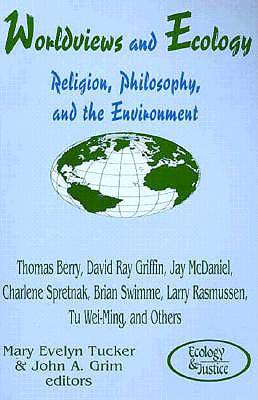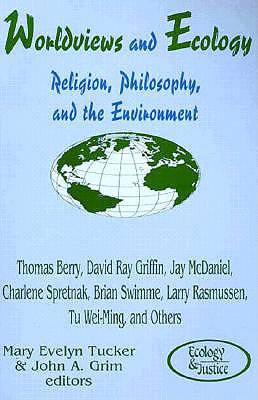
- Afhalen na 1 uur in een winkel met voorraad
- Gratis thuislevering in België vanaf € 30
- Ruim aanbod met 7 miljoen producten
- Afhalen na 1 uur in een winkel met voorraad
- Gratis thuislevering in België vanaf € 30
- Ruim aanbod met 7 miljoen producten
Zoeken
Worldviews and Ecology
Religion, Philosophy, and the Environment
€ 38,95
+ 77 punten
Omschrijving
Amidst the many voices clamoring to interpret the environmental crisis, some of the most important are the voices of religious traditions. Long before modernity's industrialism began the rape of Earth, premodern religious and philosophical traditions mediated to untold generations the wisdom of living as a part of nature. These traditions can illuminate and empower wiser ways of postmodern living. The original writings of Worldviews and Ecology creatively present and interpret worldviews of major religious and philosophical traditions on how humans can live more sustainably on a fragile planet. Contributors include Charlene Spretnak, Larry Rasmussen, Noel Brown, Jay McDaniel, Tu Wei-Ming, Thomas Berry, David Ray Griffin, J. Baird Callicott, Eric Katz, Roger E. Timm, Robert A. White, Christopher Key Chapple, Brian Swimme, Brian Brown, Michael Tobias, Ralph Metzner, George Sessions, and Mary Evelyn Tucker and John Grim. Insights from traditions as diverse as Jain, Jewish, ecofeminist, deep ecology, Christian, Hindu, Bahai, and Whiteheadian will interest all who seek an honest analysis of what religious and philosophical traditions have to say to a modernity whose consciousness and conscience seems tragically narrow, the source of attitudes that imperil the biosphere.
Specificaties
Betrokkenen
- Uitgeverij:
Inhoud
- Aantal bladzijden:
- 246
- Taal:
- Engels
- Reeks:
Eigenschappen
- Productcode (EAN):
- 9780883449677
- Verschijningsdatum:
- 17/10/1994
- Uitvoering:
- Paperback
- Formaat:
- Trade paperback (VS)
- Afmetingen:
- 155 mm x 228 mm
- Gewicht:
- 358 g

Alleen bij Standaard Boekhandel
+ 77 punten op je klantenkaart van Standaard Boekhandel
Beoordelingen
We publiceren alleen reviews die voldoen aan de voorwaarden voor reviews. Bekijk onze voorwaarden voor reviews.










